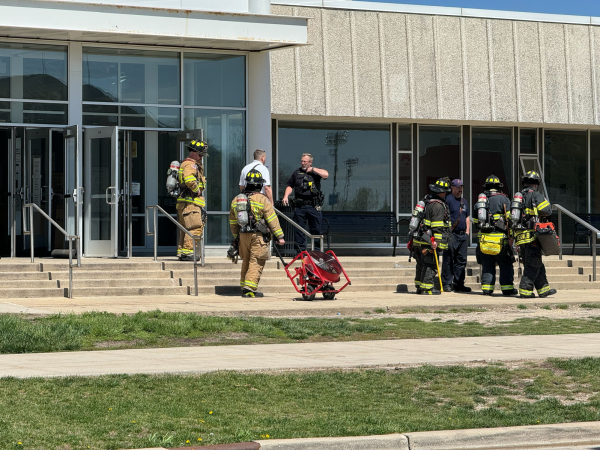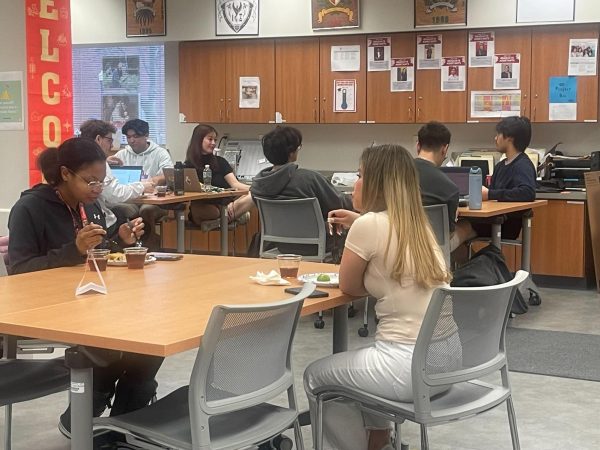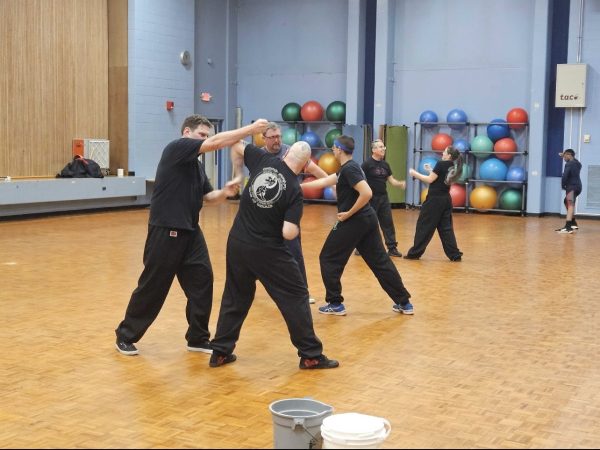Author tackles education
April 8, 2019
DeKALB — NIU community members gathered Thursday night for the last Diversity Dialogues series event of the school year, where attendees discussed the concept of white fatigue.
The Diversity Dialogue Series helps participants heighten their awareness, become comfortable in engaging in intersectional dialogue and use the understanding to expand beyond cultural competency to the action of social justice, according to the Diversity Dialogue website.
The event, held from 6 to 8 p.m. in the Regency Room of the Holmes Student Center, was facilitated by Joseph Flynn, associate director of Academic Affairs for the Center for Black Studies. He discussed his book “White Fatigue: Rethinking Resistance for Social Justice.”
The book, which came out in January 2018, discusses what passes for multicultural education in schools is often promotion of human relations and tolerance rather than a sustained critical examination of how racism shapes social, political, economic and educational opportunities for various groups, Flynn said.
He said white fatigue is when white Americans know racism is wrong and can feel it is wrong but struggle with how it functions. He said white fatigue describes the state of an overwhelming majority of white people in the country.
“Most people don’t know what they’re doing because K-12 education, and even some college professors, do not do a good job at helping us understand how racism is not simply an interpersonal phenomenon but a systemic institutional phenomenon,” Flynn said.
Flynn said there’s white fragility, which is when a white American has discomfort talking about racial inequality, and then there’s white guilt, when a white American feels guilt for harm resulting from racist treatment of people of color by other white people. He said white fatigue fits along with these terms as well.
Flynn said he wrote the book for people who identify as teachers, but anyone can read it.
“The book is kind of directed toward multiple social justice educators, and at the same time, I tried to make it general enough [that] anybody can pick it up and read it,” Flynn said.
Flynn opened the floor for a Q&A session after he spoke.
Associate professor Eric Hall, who also helped facilitate the event, asked Flynn about professors who are scared to teach about race to begin with.
“What are some sort of practical strategies teachers can use to talk about race and racism in a more nuanced manner, knowing a lot of your students read this sort of stuff on social media on a pretty regular basis?” Hall asked.
Flynn said professors have to realize that they won’t be able to teach topics like racism in a 16-week course because it’s not enough time for a student to truly understand the subject. He said professors have to start thinking about how they structure and teach students and convey to students how challenging topics like racism really are.
Senior psychology major Janae Dunn said she came to the event because Flynn is widely known within the black studies community. She said she supports Flynn along with his wife, Gena Flynn, who was the previous director of the Center of Black Studies.
“I didn’t read the book, but I definitely heard about it, and white fatigue is just something I really do want to know more about,” Dunn said. “I came on my own will just to find out more about the book and [what] he wanted to get across.”












